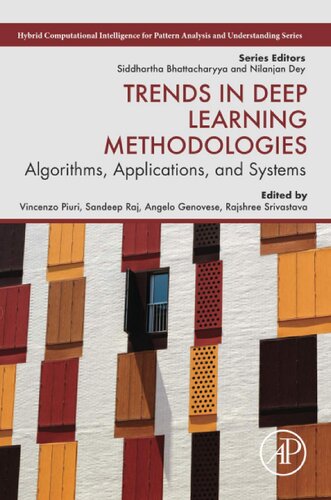

Most ebook files are in PDF format, so you can easily read them using various software such as Foxit Reader or directly on the Google Chrome browser.
Some ebook files are released by publishers in other formats such as .awz, .mobi, .epub, .fb2, etc. You may need to install specific software to read these formats on mobile/PC, such as Calibre.
Please read the tutorial at this link: https://ebookbell.com/faq
We offer FREE conversion to the popular formats you request; however, this may take some time. Therefore, right after payment, please email us, and we will try to provide the service as quickly as possible.
For some exceptional file formats or broken links (if any), please refrain from opening any disputes. Instead, email us first, and we will try to assist within a maximum of 6 hours.
EbookBell Team

0.0
0 reviewsTrends in Deep Learning Methodologies: Algorithms, Applications, and Systems covers deep learning approaches such as neural networks, deep belief networks, recurrent neural networks, convolutional neural networks, deep auto-encoder, and deep generative networks, which have emerged as powerful computational models. Chapters elaborate on these models which have shown significant success in dealing with massive data for a large number of applications, given their capacity to extract complex hidden features and learn efficient representation in unsupervised settings. Chapters investigate deep learning-based algorithms in a variety of application, including biomedical and health informatics, computer vision, image processing, and more.
In recent years, many powerful algorithms have been developed for matching patterns in data and making predictions about future events. The major advantage of deep learning is to process big data analytics for better analysis and self-adaptive algorithms to handle more data. Deep learning methods can deal with multiple levels of representation in which the system learns to abstract higher level representations of raw data. Earlier, it was a common requirement to have a domain expert to develop a specific model for each specific application, however, recent advancements in representation learning algorithms allow researchers across various subject domains to automatically learn the patterns and representation of the given data for the development of specific models.